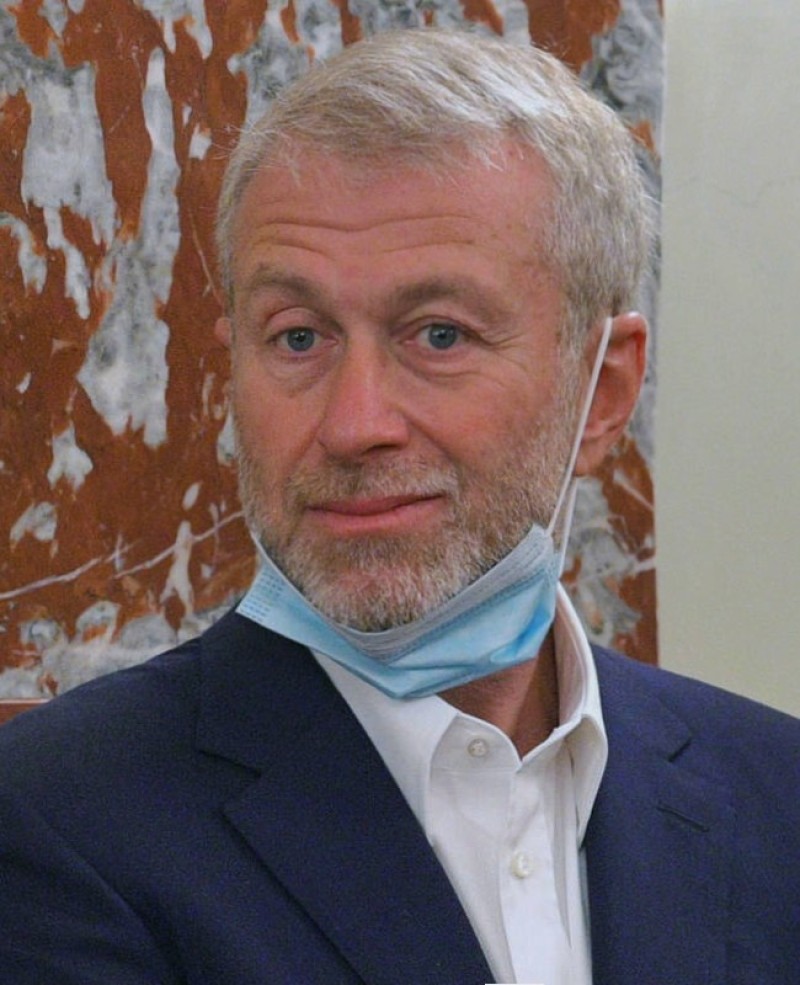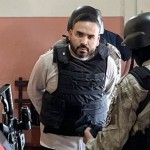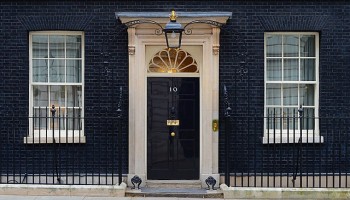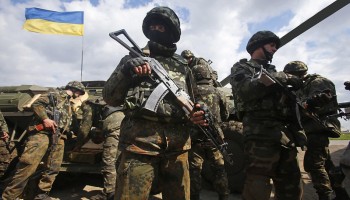But the Russian billionaire’s investment in an American pharmaceutical company that received funding from both the U.S. and Russian governments has garnered far less attention.
From 2011 until at least the end of 2021, Abramovich was an important stakeholder in Cleveland BioLabs, Inc. and its successor, Statera Biopharma, Inc. Based in Buffalo, New York, the companies have spent years developing Entolimod, an anti-cancer drug that can be used to fight the effects of radiation exposure.
“It would be a stockpiling agent,” Michael Handley, Statera’s CEO, told the pharmaceutical trade publication Endpoints News in December 2021. “So governments, including the U.S. government and around the world, would order it and stockpile it in case of God forbid, a nuclear reactor meltdown or even worse, nuclear warfare.”
Public records show that in its early years, Cleveland lobbied hard for U.S. government contracts, employing six different firms to press its case in Washington, D.C. between 2008 and 2013. Since 2010, the company has spent more than $400,000 on lobbying, according to analysis by the Anti-Corruption Data Collective, a nonprofit group of journalists and data scientists.
“They were actually pretty aggressive on the lobbying front, on par with the major players,” a lobbyist who worked for one of the six firms Cleveland hired told OCCRP, speaking on condition of anonymity.
That lobbying soon paid off. In September 2010, Cleveland was awarded a nearly $5.4 million research contract by the U.S. Army Space and Missile Defense Command.
Abramovich invested in Cleveland the following year, though it’s unclear exactly how much. In a later regulatory filing the company said he had provided $10.5 million, with the right to increase his investment up to $30 million.
A representative of Cleveland’s successor company, Statera, confirmed Abramovich was an investor as of the end of last year, but would not give any more details. The oligarch’s London-based spokesperson wouldn’t comment either.
Cleveland won another $9.8 million contract from the Defense Department’s Joint Warfighter Medical Research Program in 2015, receiving a total of $15.8 million from the U.S. government that year. In a March 2020 regulatory filing, the company said U.S. state contracts accounted for 81.2 percent of revenues that year, and 64.5 percent in 2019.
Meanwhile, public documents show that more than $60 million has flowed into Cleveland from the Russian government, Abramovich, and other private Russian investors.
In 2013, two of its subsidiaries won more than $9 million in contracts with Russia’s Ministry of Industry and Trade to develop Entolimod and another cancer drug.
Months before Cleveland won the first U.S. government contract in 2015, Abramovich’s right-hand man, David Davidovich, reportedly took a controlling stake in the company with a $25 million investment. Davidovich then named seven directors to Cleveland’s board, all of whom reportedly worked for Abramovich’s investment vehicle, Millhouse LLC.
By 2020, Cleveland warned that its Russian connections could imperil its business with the U.S. government.
“Because the largest holder of our company’s outstanding common stock is an investor with ties to Russia, and several Russian citizens and residents serve on our board of directors, our ability to secure and maintain contracts with the U.S. Department of Defense and other U.S. government agencies … may become more difficult,” the company said in the March filing.
Louise Shelley, director of the Terrorism, Transnational Crime and Corruption Center at George Mason University in Virginia, said there should be more transparency around who is investing in developing products that can be used in the battlefield.
“I think there is an absolute need for a review of who is producing materials of national security concern and who are the investors in it, who is benefitting from it,” said Shelley.
“We are just blind about who is behind our investments, what we are not looking at, how we allow shell companies and nesting companies to invest in key security sectors.”
The Pentagon did not respond to requests for comment.
Donations and Sanctions
Abramovich’s investment in Cleveland BioLabs isn’t his only foray into the U.S. pharmaceutical industry.
Over the past five years he has also been the largest individual donor to the New York State-run Roswell Park Cancer Institute, giving over $1 million per annum, according to records reviewed by Investigative Post.
Roswell Park is one of several cancer non-profits that in 2011 entered a joint venture with Cleveland and state-backed Russian incubator Rusnano to create Panacela, one of the Cleveland subsidiaries that won contracts with Russia’s Ministry of Industry and Trade.
At the time, Rusnano was run by Anatoly Chubais, who helped lead Boris Yeltsin’s privatization in post-Soviet Russia in the 1990s, when Abramovich made his fortune. Chubais left Rusnano in 2020 to become a Kremlin adviser to development organizations, but fled Russia this year after resigning in protest over the invasion of Ukraine.
Annie Deck-Miller, a spokesperson for Roswell Park, said the institute has had no contracts with Cleveland since July 2018, but defended its work with Abramovich.
“Mr. Abramovich has been a generous supporter of the cutting-edge cancer research happening at Roswell Park, and his donations have helped to advance the progress of science that saves lives,” Deck-Miller told Investigative Post. “Cancer is a global issue that affects all of us.”
It’s unclear what has happened to Abramovich’s stake in Cleveland this year. In recent weeks he has been sanctioned by the U.K., the European Union, and Canada in response to Russia’s invasion of Ukraine, but so far the U.S. has not followed suit.
The Wall Street Journal reported in March that Abramovich had transferred control of Norma Investments, through which he invested in Cleveland, to Davidovich just hours after Russia invaded.
The U.K. sanctioned Davidovich and another of Abramovich’s aides, Eugene Tenenbaum, on Thursday, estimating the move would lead to 10 billion British pounds of assets being frozen. Tenenbaum told OCCRP that he was not involved in the investment in Cleveland.
Statera doesn’t mention Abramovich in documents filed with the U.S. Securities and Exchange Commission this year, and the company appears to be in freefall.
In late March, it issued nearly $5.7 million worth of new shares in a bid to raise money. But on March 28, it notified the Nasdaq stock exchange that two board members had resigned, leaving it without enough independent directors.
Then, this month, Statera said its external auditor had also quit. The auditor did not respond to questions about whether this was related to sanctions.
Geoff Kelly of the Investigative Post in Buffalo and David Szakonyi of the Anti-Corruption Data Collective contributed reporting.






